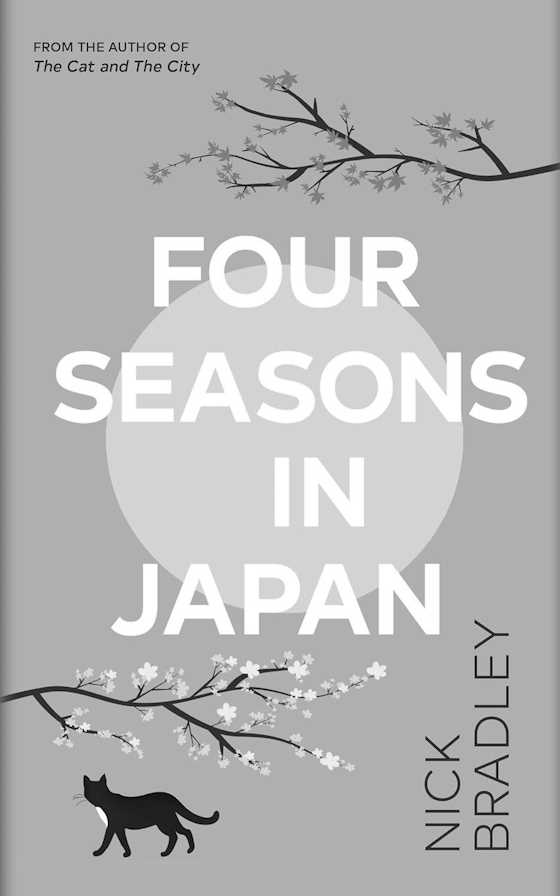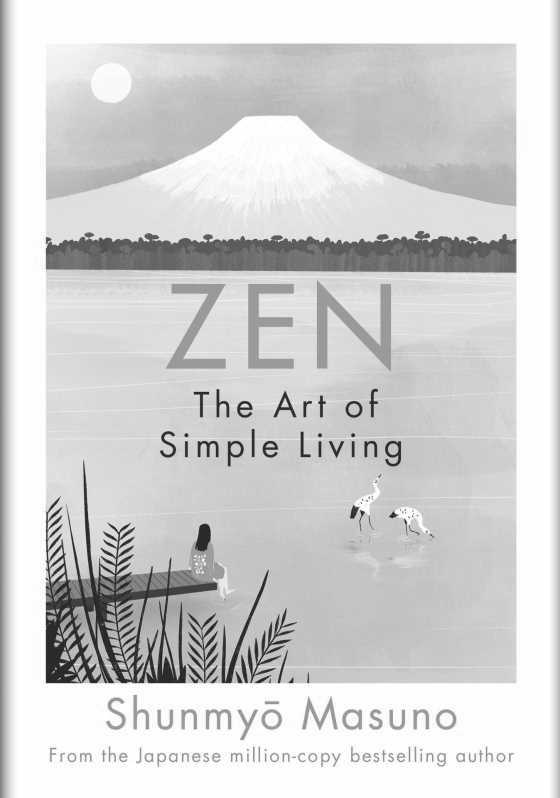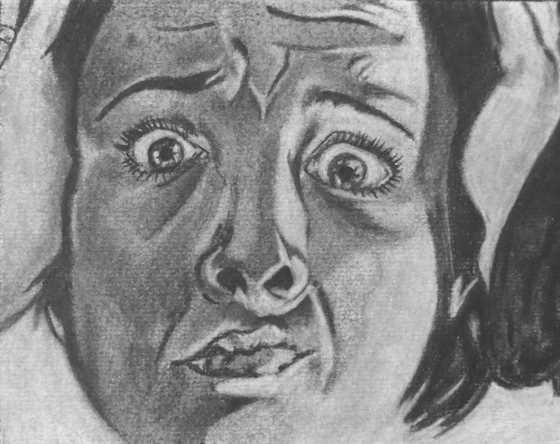
I’m currently rebuilding the website as the old one got totally messed up when i was playing around with things (no idea what happened).
So i thought that while it was a total clusterfuck mess of SQL, i would take the opportunity to give it a whole new life and everything.
So if you go clicking on things you might find that very strange things happen. Don’t moan, i know a lot of things are broken, i’m working on it, it takes time.
I’ve got tons of old posts and pages from three websites that i’m working through and will be gradually posting all the stuff i want to keep on here while fixing all the broken things as i go through, one post, one page, at a time.
On top of doing all that, i will, of course, be continuing to add more new content and my latest posts will always appear directly below.
Or, if you prefer, you can also follow me on Twitter and Pinterest where i put a link to all new posts.
Enjoy
After Alice — Gregory Maguire
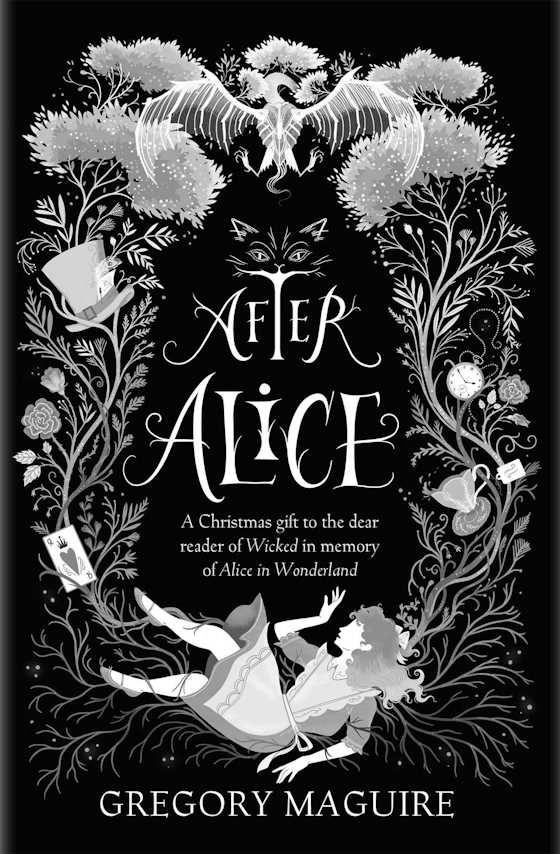 Reading other reviews one finds a lot of complaining about Gregory’s lexicon. While i can agree that Gregory does have a rather outdated lexicon, i think those who wrote those reviews are very much missing the point of Gregory’s writing. The Wonderful Wizard of Oz and Alice’s Adventures in Wonderland were very much books of the Victorian age and Gregory’s writing in his spin offs from both simply tends to keep with the language of that age and the words used — he is, after all, a Victorian spin off specialist so why be surprised at the Victorian use of words in his writing? I would definitely say that all the words i had to quickly look up on my Kindle were Victorian throw backs and to be quite honest they didn’t detract from Ada’s story at all for me. If anything, they brought a genuineness to Ada’s story in that they kept it within the upper middle class Victorian world in which this is set.
Reading other reviews one finds a lot of complaining about Gregory’s lexicon. While i can agree that Gregory does have a rather outdated lexicon, i think those who wrote those reviews are very much missing the point of Gregory’s writing. The Wonderful Wizard of Oz and Alice’s Adventures in Wonderland were very much books of the Victorian age and Gregory’s writing in his spin offs from both simply tends to keep with the language of that age and the words used — he is, after all, a Victorian spin off specialist so why be surprised at the Victorian use of words in his writing? I would definitely say that all the words i had to quickly look up on my Kindle were Victorian throw backs and to be quite honest they didn’t detract from Ada’s story at all for me. If anything, they brought a genuineness to Ada’s story in that they kept it within the upper middle class Victorian world in which this is set.
And i also find it nice to learn a few new (old and forgotten) words to baffle people with: pompous as accused by curmudgeons or simply having fun with language?
There are certainly worse writers out there for using overblown language, and they have no excuse at all for doing so as they are writing contemporary fiction, not Victorian spin offs.
If you can’t be bothered with a little Victorian style language then maybe this book isn’t for you. But if you can just accept it’s there for a valid reason and deal with it accordingly and enjoy expanding your vocabulary a little along the way then you’re in for a good yarn.
I read this immediately after reading the original 4 books on Wonderland and i felt it flowed really well from those.
Although, unlike the original Alice books, this book is certainly not for young children. It’s definitely aimed at a more mature audience: those who enjoyed Alice in their childhood who would like to revisit Wonderland as late teens and adults.
The story does end with several loose ends, which i hope means Gregory will be coming back to Wonderland in the future to finish these loose ends off.
I for one enjoy Gregory’s writing and will always be a fan of his books.
Here be some more “Alice and Wonderland” books.

Gregory’s Page
#gregorymaguire #aliceinwonderland #viclit
The Hunting of the Snark an Agony, in Eight Fits — Lewis Carroll
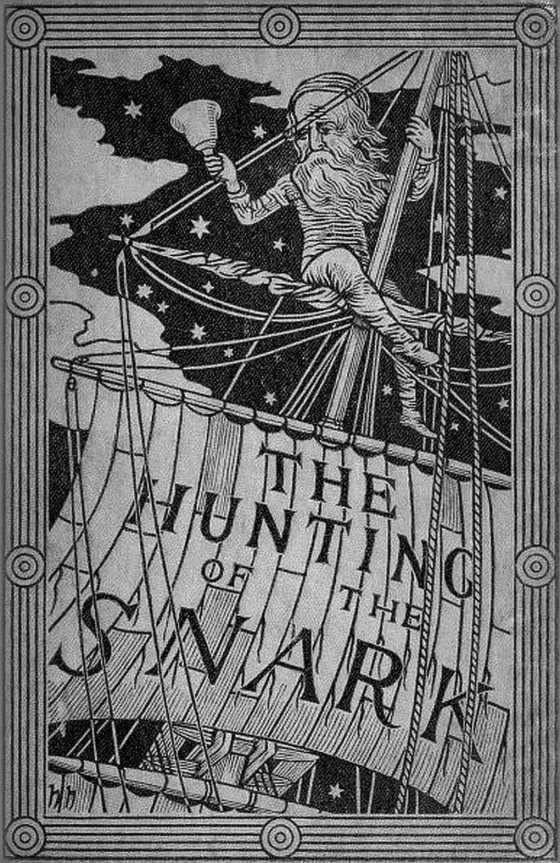 The last of the 4 books in the Alice series. Although it’s not actually about Alice because Carroll had stopped chasing after Alice Lidell at this point in time because Alice had grown tall. He had moved onto another young girl, i believe her name was Gertrude. So one wonders what he alludes to with the word, “Snark”.
The last of the 4 books in the Alice series. Although it’s not actually about Alice because Carroll had stopped chasing after Alice Lidell at this point in time because Alice had grown tall. He had moved onto another young girl, i believe her name was Gertrude. So one wonders what he alludes to with the word, “Snark”.
That aside, it’s a great poem, but the layout on this version leaves a lot to be desired. But it is a free version so shouldn’t really complain.
Would recommend paying a few pence for a version with a better layout if you do wish to read it.
Here be some more “Alice and Wonderland” books.

Lewis’ Page
#poetry #lewiscarroll #aliceinwonderland #viclit
Through the Looking-Glass — Lewis Carroll
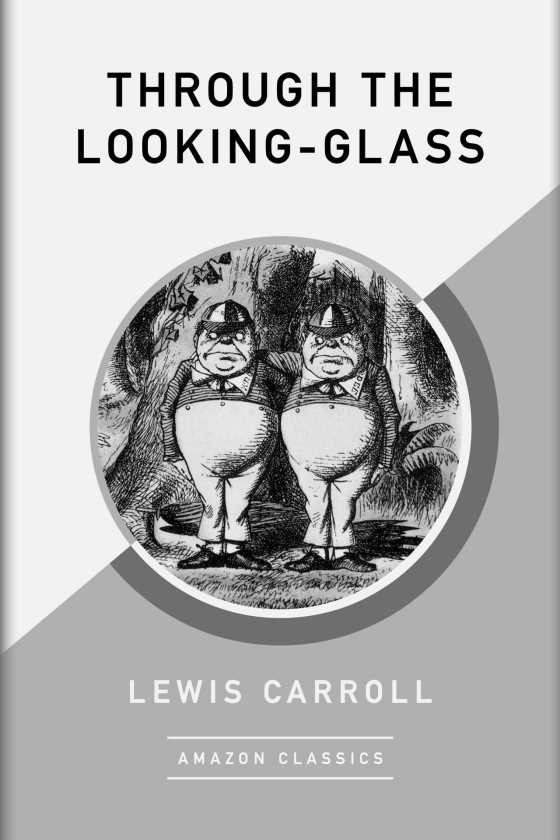 >As much as these are wonderful stories, if we just take them as stories, the tale behind them is, i think, a rather dark and disturbing one.
>As much as these are wonderful stories, if we just take them as stories, the tale behind them is, i think, a rather dark and disturbing one.
Who is this written for? Is it to confuse or calm the young girls that Carroll was chasing after? Or is it Carroll dealing with his demons? Or a bit of both?
Here be some more “Alice and Wonderland” books.

Lewis’ Page
#lewiscarroll #aliceinwonderland #viclit
Alice’s Adventures Under Ground — Lewis Carroll
 I’m having an Alice binge at the moment and decided i needed to go back to the very beginning of the story to see how it came about.
I’m having an Alice binge at the moment and decided i needed to go back to the very beginning of the story to see how it came about.
This book is great, not just having the original story, but also letters to and from the author at the time. A very enlightening piece of literary history which puts the whole Alice and Wonderland thing into a somewhat disturbing perspective which i’ll let everyone else make their own minds up about.
Anyway, disturbance aside, i can’t change history, so i’m going to continue the journey and get straight into Alice’s Adventures in Wonderland, which is the re-written and added to edition for public consumption of this original which was written purely for Alice Liddell by Charles Dodgson (aka Lewis Carroll).
Definitely something all adults should go back and read — and maybe learn not to take things too seriously, or at least, at face value.
Here be some more “Alice and Wonderland” books.

Lewis’ Page
#lewiscarroll #aliceinwonderland #viclit
The Pleasure Trap — Douglas J Lisle
The Pleasure Trap by Douglas J Lisle is probably one of the most important books for surviving the modern age.
My thoughts on this:
When Homo sapiens first stood upon the Earth we were born into a savage garden where most things either wanted to eat us or were poisonous, and if we wanted to survive and help our children to survive to an age where they could have children we had to learn to navigate that savage garden in a precise way to avoid the predators and parasites and toxic things that live within it.
Fast forward to the 21st century and our savage garden is now capitalism. And the predators and parasites are corporations and the poisonous things are the food and medicine that they sell to us. They lure us in by using our evolved nature — that suited us perfectly upon the Earth thousands of years ago — against us. We are for the most part seemingly defenceless against the tirade of sweet, fat and salty food and medicines that relieve symptoms but never deal with the cause.
But are we defenceless?
Not if you’re aware of the pleasure traps that they have created to enslave you.
Chronic diseases, the diseases that once were the diseases of kings and the ruling classes, are now the diseases of almost everyone thanks to the corporatisation of the food chain and the medical industry. And chronic disease is caused by nothing more than eating too much of the wrong foods and taking the wrong medicines.
Read this book and learn how to avoid the pleasure traps and how to extract yourself from them when you fall into them.
Your future and your children’s future and their children’s future lies within your grasp of the pleasure traps that corporate predators and parasites have placed in the savage garden of capitalism.
It’s your choice.
You can take your sick, suffering part in their eugenics experiment or walk away from it and be healthy and free.
PS. If you enjoyed the message within this book then you may also enjoy reading Anna Lembke’s book Dopamine Nation: which will give you a few more tools for your dopamine control toolbox.

Douglas’ Page
#food #bigfood #bigpharma #DouglasJLisle
Sourdough — Robin Sloan
 If you liked Robin’s Penumbra books then throw this on your reading list and have at it: more of that Robin Sloan style for you to enjoy.
If you liked Robin’s Penumbra books then throw this on your reading list and have at it: more of that Robin Sloan style for you to enjoy.
If, however, you’ve come across this book because you’re into sourdough baking and was looking for a story to read that reflects the real challenges, difficulties etc., of baking your own sourdough breads, then you’ll probably want to read something else.
Conversely, if you’ve come across this book because you’re into sourdough baking but are able to put aside — for a while at least — your overly strict, sourdough-baker expectations to read a fun story about a magical and strange starter from a mysterious foreign land — including it’s musical tastes — then you just might really enjoy a good, fun read and become another Robin Sloan fan just like the rest of us.
Robin wrote an article all about sourdough: “Sourdough: A Confession, a Recipe, and a Playlist”.
And check out my review of the album that the Sourdough music was inspired by clicking here.

Robin’s Page
#scifi #robinsloan
The Keeper of Lost Things — Ruth Hogan
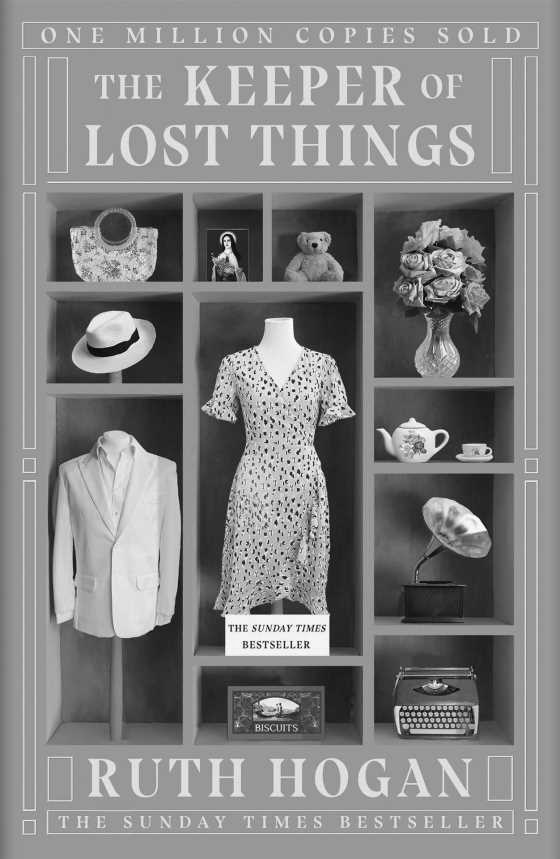 A really enjoyable book.
A really enjoyable book.
The best thing about owning a Kindle is discovering “Kindle Book Deals”. For 99 pence, including delivery, you really can’t go wrong trying out books simply judged by their titles and covers. This one was a certainly a diamond in the rough.
Ruth’s treatment of Down’s Syndrome was a breath of fresh air in a world so full of ignorance and stigma, and her treatment of Alzheimer’s disease equally so. Ruth really isn’t afraid to delve into lives that few writers would fear to tread and does so with care and understanding.
Definitely a book for anyone wanting to read a lovely, well thought out, enjoyable story with great characters you can’t help but enjoy — Ruth even manages to include a likeable ghost.
And if you should enjoy this book — and why wouldn’t you — then treat yourself and dive straight into Ruth’s next book: The Wisdom of Sally Red Shoes.

Ruth’s Page
#ruthhogan
Ajax penumbra: 1969 — Robin Sloan
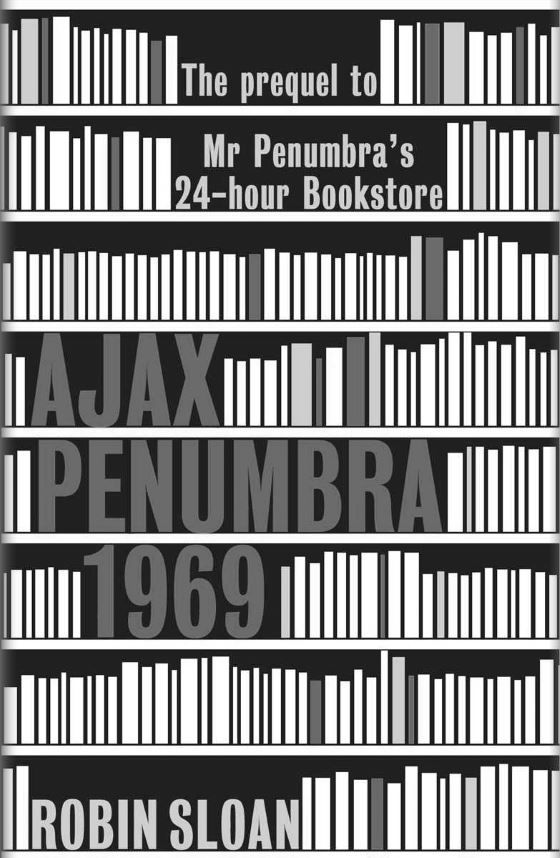 The first time i read The Little Paris Bookshop, i was inspired to go on the hunt for more book shop stories: that was when i found Mr. Penumbra’s 24 Hour Book Store.
The first time i read The Little Paris Bookshop, i was inspired to go on the hunt for more book shop stories: that was when i found Mr. Penumbra’s 24 Hour Book Store.
And i’m glad i did go looking. I really enjoyed Mr. Penumbra’s 24 Hour Book Store and having read that i later discovered Robin had written this little prequel.
Robin has quickly become a favourite writer and i dived straight into reading Sourdough immediately after finishing this. His stories have a really nice flow with interesting likeable characters and nice easy going English.
Which should one read first, this or Mr. Penumbra’s 24 Hour Book Store? Well knowing what i know now, i would read Ajax penumbra 1969 first, as i now feel that i need to go and re-read Mr. Penumbra again to give it more clarity, so i’m not reviewing that until i’ve got around to reading it again.
I think the difference is whether you want to meet the bookshop first from Ajax’s first view in 1969 or from Clay’s first view in the 21st century. But you’ll want to read the other book again after finishing the other book either way, so i don’t really think it makes much difference.

Robin’s Page
#robinsloan
Breatheology — Stig Avall Severinsen
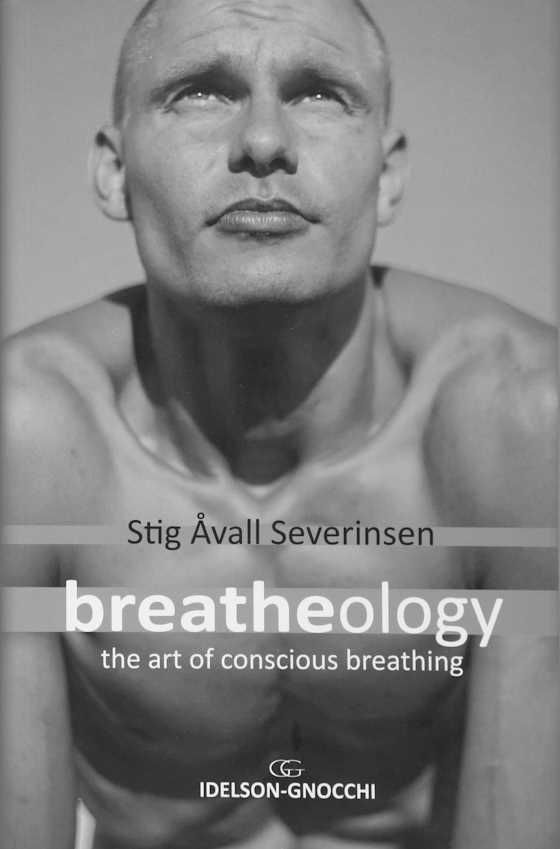 Being a four time world champion freediver, Stig certainly knows a thing or two about breathing and he lays it all out in this great book that is aimed at everyone who wishes to improve their health, fitness and wellbeing: not just freedivers.
Being a four time world champion freediver, Stig certainly knows a thing or two about breathing and he lays it all out in this great book that is aimed at everyone who wishes to improve their health, fitness and wellbeing: not just freedivers.
Breathing is one of the most important things we do in life, if not the most important, yet we pay so little attention to it until something goes horribly wrong.
Stig’s book explains pretty much everything you needed to know about good breathing practise and how to achieve a much more healthier life with a great variety of exercises that will improve your breathing. And you don’t need to be a great athlete to benefit from this book. Even people bedridden with disabilities can benefit from some of these simple to practise exercises.
So whether you’re a freediver or not, it’s a great book to have on your shelf.

Stig’s Page
#fitness #health #stigavallseverinsen
The Little White Bird; or, Adventures in Kensington Gardens — J. M. Barrie
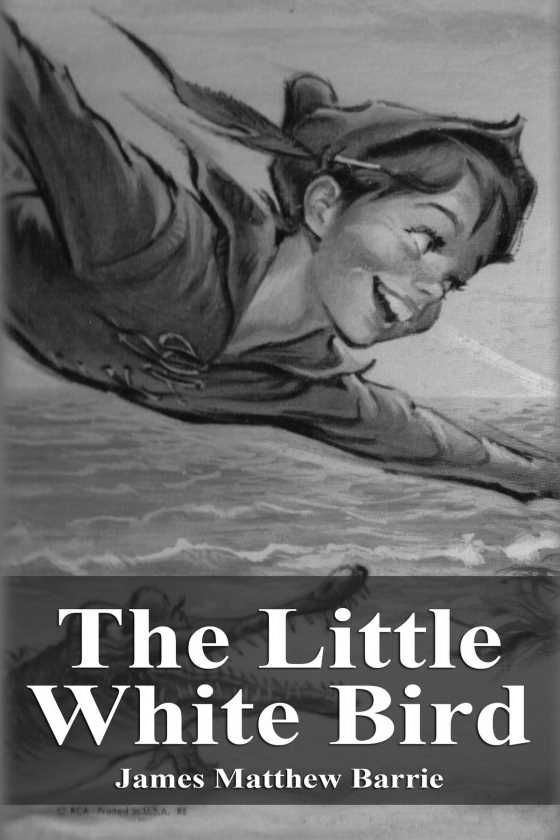 This is the very book wherein Peter Pan makes his first appearance. The parts within that include Peter Pan were later published as Peter Pan in Kensington Gardens which is not to be confused with the full Peter Pan story, which was subsequently published as Peter and Wendy or later, just simply, Peter Pan.
This is the very book wherein Peter Pan makes his first appearance. The parts within that include Peter Pan were later published as Peter Pan in Kensington Gardens which is not to be confused with the full Peter Pan story, which was subsequently published as Peter and Wendy or later, just simply, Peter Pan.
I know, it gets quite confusing tracking down the origins of these Vic Lit legends, you get the same shenanigans with Alice in Wonderland. But it does add a little challenge to your reading, which would normally just consist of buying a book you like the look of and reading it.
I’ve read in some reviews people saying they couldn’t understand this book and they kept on getting confused. Obviously they didn’t factor in that this is written in beautiful Victorian prose and is not some standard contemporary novel. I do feel that in order to fully enjoy Vic Lit then you really need to read a few books to get up to speed on the use of the language by these writers. Most of these books were written by very well educated Victorians, not the lower classes, and they used the language quite differently to how we use it today with words that have completely escaped the modern English lexicon altogether.
I do believe that anyone who will take a few books to adjust to Victorian prose will find the effort is well rewarded. Victorian prose is, to my mind at least, the most delightful and eloquent English prose i’ve ever read.
I digress, tangents become me, let’s to the story: The Little White Bird is, at it’s heart, a lost-love story that gets played out and revealed through the book. It has our ageing, bachelor protagonist getting caught up baby sitting a child that he never actually meant to get involved with, and having had no involvement with children before, can only cope with them by comparing them to his St. Bernard dog which, at times, he seems fairly certain is far superior in most respects. His adventures with the child, David, are where this book gets it’s other title — Adventures in Kensington Gardens — as they spend a lot of time there.
Throughout the beautiful Victorian prose there is an undoubted light heartedness and a certain tongue in cheekness to this book that is both captivating and enjoyable. And it’s descriptiveness of the habits of Victorian upper class children and their wards within Kensington Gardens at that time is delightful — Barrie is a master wordsmith.
Oddly, although it was the reason for reading this book in the first place, i found the Peter Pan bit — and it is only a bit — to be a tiny bit annoying; i became so enthralled in the every day descriptions of Victorian life around Kensington Gardens, and also our protagonist’s story, that i just wanted to get away from the habits of Peter Pan and the fairies and back to the habits of the humans and the aforementioned St. Benard. At the same time, it is also something i wouldn’t have wanted left out as it gives the full back story of Peter Pan, how he came to be and why he is like he is.
All in all, an absolute must for anyone who enjoys Victorian Literature, it really is an absolute gem. And also an absolute must for anyone who loves Peter Pan and wants the full history of the character in the context from which he first flew.
And did i mention, this Kindle version is completely free — what’s not to like?
Some more “Peter Pan and Neverland” books.



